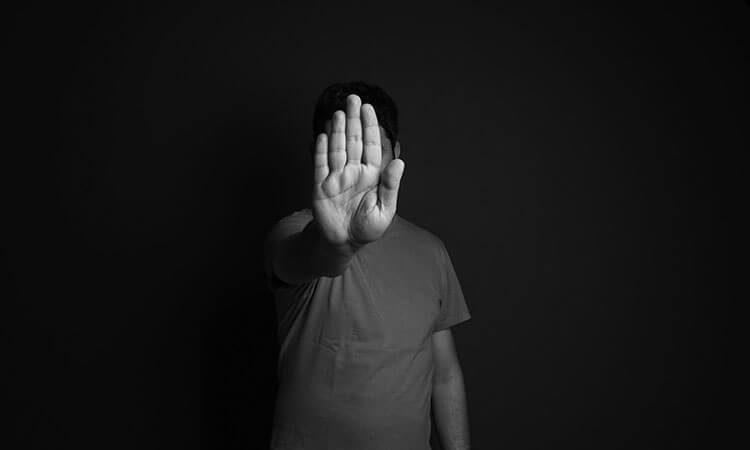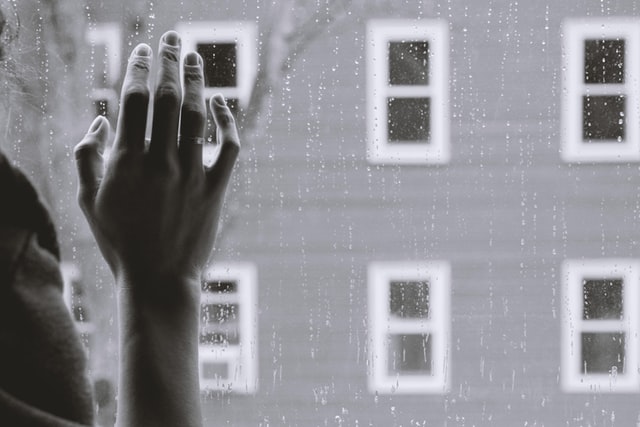Living with anxiety can feel difficult and overwhelming. But you’re not alone. The right treatment can help you manage your anxiety and live a healthier, more peaceful life.
At Recovery In Tune, we specialize in compassionate, evidence-based treatment for generalized anxiety disorder and other types of anxiety disorders. If you live in or around Davie, Florida, we’re here to offer hope and support.

What to Know About Anxiety Disorders
Anxiety disorders are common mental health conditions that can affect daily life.
Everyone experiences stress, but people with anxiety disorders often have intense or overwhelming feelings of worry, fear, or unease that go beyond everyday stress. Anxiety can affect your relationships, work, and overall health.
Fortunately, anxiety isn’t something you have to suffer through without help. Effective treatment makes it possible to manage anxiety and regain balance in your everyday life.
At Recovery In Tune, we can help you build a foundation for sustainable wellness and hope through our tailored treatment plans.
Causes & Risk Factors of Anxiety Disorders
Anxiety disorders don’t have one single, specific cause. Studies suggest that anxiety results from a combination of factors, including genetics, environment, and personal experiences.
While anxiety disorders don’t have a specific cause, there are certain risk factors that increase your likelihood of developing anxiety. These risk factors may include:
- A family history of anxiety or other mental health conditions
- Chronic stress
- Trauma or past traumatic experiences, especially as an adolescent
- Substance abuse or withdrawals
- Certain personality traits, like being shy or oversensitive
- Certain medical conditions, like arrhythmia or thyroid problems
- Having other mental health conditions
By recognizing and addressing these underlying factors, Recovery In Tune can help reduce the impact of your anxiety.
Common Symptoms of Anxiety Disorders
Anxiety can look different for everyone. Your symptoms may also vary based on the type of anxiety disorder you have. But some common symptoms include:
- Excessive worrying or fear
- Feeling nervous or restless
- Feelings of dread or impending danger
- Stress about social situations
- Irritability or feeling frustrated
- Difficulty concentrating
- Trouble sleeping
- Sweating
- Trembling
- Muscle tension or aches
- Rapid breathing or heart palpitations
- GI problems
Recognizing the signs and symptoms of anxiety is an important first step in managing your disorder. If you have any mental or physical symptoms of anxiety, Recovery In Tune offers supportive programs to help.
Types of Anxiety Disorders Treated at Recovery In Tune
There are many different types of anxiety disorders. No matter what anxiety disorder you’re struggling with, Recovery in Tune can help.
Here are some of the primary types of anxiety disorders we help treat:
- Generalized anxiety disorder: Generalized anxiety disorder (GAD) is characterized by persistent worry and stress about everyday activities. The symptoms of GAD can lead to physical and emotional exhaustion.
- Obsessive compulsive disorder: OCD is characterized by unwanted thoughts or repetitive behaviors that feel uncontrollable. These behaviors or obsessions are known as compulsions.
- Panic disorders: Panic disorders can lead to short-term episodes of intense fear, often accompanied by physical symptoms like chest pain or rapid heartbeat. These episodes are known as panic attacks or anxiety attacks.
- Other types of anxiety disorders: Recovery In Tune helps with other anxiety disorders like social anxiety disorder, separation anxiety disorder, post-traumatic stress disorder, specific phobias, and more. We also treat anxiety disorders that don’t fall neatly into any of these categories, which are known as unspecified anxiety disorders.

Now is the perfect time to begin to heal!
Long Term Effects of Anxiety Disorders
When left untreated, anxiety can lead to long-term complications and side effects. Some unwanted effects of anxiety disorders include:
- Mental health challenges: Anxiety can lead to or worsen other mental health conditions, like depression.
- Substance abuse: Anxiety is a risk factor for substance abuse or misuse.
- Physical health issues: Anxiety can lead to or worsen physical health issues like digestive problems, headaches, chronic pain, weakened immune system, increased blood pressure, and more.
- Insomnia: Anxiety can lead to sleep problems like insomnia. Lack of sleep can lead to a host of other physical and mental health problems in people, causing a vicious cycle.
- Undue stress: Some stress is natural, but our bodies aren’t meant to be in prolonged or frequent states of stress. The stress caused by anxiety can lead to other stress-related health issues.
- Reduced quality of life: Anxiety can lead to a poorer quality of life. Maintaining relationships, careers, school work, and personal goals can make it difficult.
- Suicide: Anxiety can increase the risk of suicide or suicidal thoughts.
Early intervention and support can help prevent and mitigate the long-term effects of anxiety. Don’t let anxiety go untreated if you feel like you’re experiencing symptoms.
Anxiety Disorder Treatment Program in Davie, FL
Recovery In Tune provides specialized treatment options to meet your unique needs. Here are some of the main programs we offer at our facility in Davie, FL:
Partial hospitalization programs (PHP) provide structured, evidence-based treatment that is more flexible than 24/7 residential care. Our mental health partial hospitalization program involves intensive mental health care during the day but allows you to go home at night.
Our intensive outpatient program (IOP) is a flexible program ideal for people with anxiety who need high-level support while still maintaining their daily routines. You can access various outpatient therapies, support groups, and mental health services to help you manage your condition.
This allows you to balance your life and your condition with evidenced-based therapies to build coping skills that manage your anxiety.
Anxiety often coexists with other mental health issues, such as substance abuse. Our dual diagnosis treatment program can integrate care for both conditions.
This ensures you have a holistic and tailored treatment to address the symptoms and effects of your co-occurring conditions.
For each of our programs, you can access therapies and services such as:
- Therapeutic interventions: Access to psychotherapy, cognitive behavioral therapy, family therapy, and trauma therapy.
- Life skills and education workshops: Learn self-help tools and skills to navigate everyday life.
- Psychiatric services: Access to mental health professionals and services. Our team can help you build a treatment plan that includes therapy, support groups, medications, or a combination of these.
- Medication-assisted treatment: Anxiety is sometimes treated with medications like selective serotonin reuptake inhibitors (SSRIs), serotonin-norepinephrine reuptake inhibitors (SNRIs), tricyclic antidepressants (TCAs), benzodiazepines, or beta-blockers. Our team can help you navigate medication-assisted treatment to find what works for you.
Anxiety Therapies at Recovery In Tune
At Recovery In Tune, we offer a range of therapeutic approaches to treat anxiety disorders. Some of the therapies we offer include:
12-step facilitation therapy incorporates the principles of the 12-step program. This helps you build a community of support while addressing your anxiety.
Cognitive behavioral therapy (CBT) is an evidence-based therapy that focuses on identifying and changing unhelpful thought patterns that contribute to anxiety.
Those who live with anxiety may find it hard to feel present or calm. Mindfulness and meditation are stress management and relaxation techniques to help you stay present and grounded. They act as tools to manage anxiety and reduce stress.
Alternative therapies like adventure and yoga can allow for movement, self-reflection, and mental clarity. Adventure therapy allows you to engage in outdoor activities, like kayaking or hiking, that provide various mental health benefits.
For those who have anxiety rooted in trauma, trauma therapy provides a safe environment to explore and heal from past experiences.
Find Life Changing Care for Anxiety at Recovery In Tune
Are you ready to take control of your anxiety and reclaim your life? If you or a loved one is battling anxiety, Recovery In Tune is here to offer compassionate support every step of the way.
Our team is ready to help you with evidence-based programs and therapies tailored to your unique needs.
Don’t let anxiety hold you back. Start your journey to recovery with Recovery In Tune today.
Anxiety Treatment FAQs
There isn’t one perfect treatment for anxiety. The needs of each person are unique. Typically, treatment involves a combination of therapy, lifestyle changes, and anti-anxiety medication if necessary.
Anxiety treatment can be very effective. The right support and treatment program can lead to significant, life-changing relief for those who suffer from anxiety.
Anxiety can’t be completely cured. But anxiety disorders can be managed, and people can live healthy, happy lives that aren’t ruled by their anxiety.
Sources
- American Psychiatric Association. “What are Anxiety Disorders?” Retrieved from: https://www.psychiatry.org/patients-families/anxiety-disorders/what-are-anxiety-disorders. Accessed on October 29, 2024.
- American Psychological Association. “What is Cognitive Behavioral Therapy?” Retrieved from: https://www.apa.org/ptsd-guideline/patients-and-families/cognitive-behavioral. Accessed on October 29, 2024.
- Medical News Today. “Everything you need to know about anxiety medications.” Retrieved from: https://www.medicalnewstoday.com/articles/323666. Accessed on October 29, 2024.
- National Institute of Mental Health (NIMH). “Anxiety Disorders.” Retrieved from: https://www.nimh.nih.gov/health/topics/anxiety-disorders. Accessed on October 29, 2024.
- National Library of Medicine (NIH). “The Relationship Between Anxiety Disorders and Suicide Attempts: Findings from the National Epidemiologic Survey on Alcohol and Related Conditions.” Retrieved from: https://pmc.ncbi.nlm.nih.gov/articles/PMC2940247/. Accessed on October 29, 2024.
- Substance Abuse and Mental Health Services Administration (SAMHSA). “Anxiety Disorder.” Retrieved from: https://www.samhsa.gov/mental-health/anxiety-disorders. Accessed on October 29, 2024.